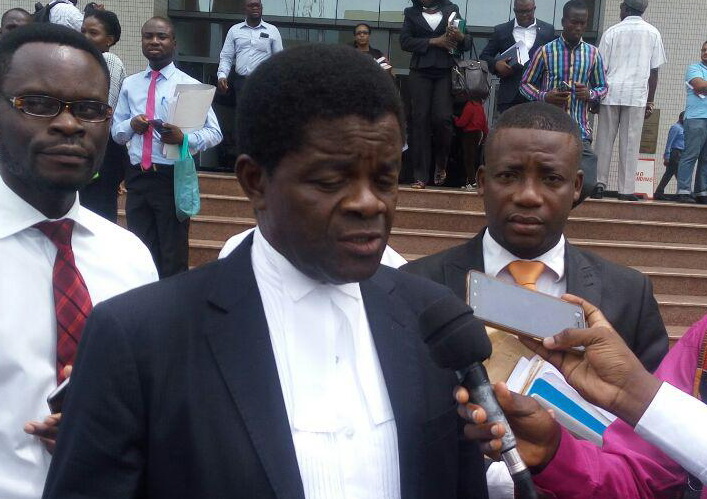An application by 11 LLB graduates to stop the upcoming entrance examination into the Ghana School of Law slated for today, July 14, 2017, has been dismissed by the Human Rights Division of the Accra High Court.
In a ruling Thursday, the court, presided over by Mr Justice Anthony Yeboah, held that the plaintiffs, in their application for interlocutory injunction, failed to prove that they would suffer any hardship as a result of the entrance examination.
“I am not sure that the plaintiffs have successfully demonstrated to me that they will suffer any irreparable harm or damage if the application for interim injunction is refused. Accordingly, I refuse the application,’’ he ruled.
“Exam illegal”
The Law graduates, who call themselves the Concerned LLB Graduates, filed the interlocutory injunction application after they had sued the General Legal Council (GLC) for going ahead with the examination, although it had been declared unconstitutional by the Supreme Court.
The Supreme Court, in a unanimous decision on June 22, 2017, declared the entrance examination and interview as a prerequisite for admission to the Ghana School of Law as unconstitutional.
It, however, stated that in the public interest, its decision must not take retrospective effect but should be implemented when admission for the 2018 academic year began.
The court maintained that it would not want to interfere in the work of the school this academic year, given the effect it would have on the admission process.
But the plaintiffs, in their writ, argued that so far as the Supreme Court had declared the entrance examination illegal, the GLC, through the Independent Examination Board (IEB), had no legal backing to conduct the examination.
“Allowing the defendant/council to administer the entrance examination on Friday, July 14, 2017 would amount to a grant of immunity from the consequences of breaching sections 13 and 14 of the Legal Profession Act, 1960 (Act 32), Regulations 2 and 3 of the Professional Law Course Regulations, 1984 (L.I. 1296) and articles 11(7), 23, 296(a) and (b) of the 1992 Constitution,’’ they argued.
Arguments
Moving the motion for the application yesterday, Mr Kwaku Ansa-Asare, lawyer for the law graduates, contended that the Supreme Court, by giving the GLC a grace period to implement its decision, failed to fully appreciate the very laws it relied on to make its decision.
“How can the Supreme Court declare the entrance exam unconstitutional and still allow it to be held? Even if chaos should result from halting the examination complained of, still the law must be obeyed,” he said.
In his response opposing the application, lawyer for the GLC, Nana Yaw Ntrakwa, said the High Court was not the appropriate forum to challenge decisions of the Supreme Court.
He also argued that the interlocutory injunction had no basis because the issues raised in the substantive writ had already been determined by the Supreme Court in its June 22, 2017 judgement.
“The issues raised in the writ are dead and, therefore, the application is frivolous,’’ he said.
Chaos
Giving further reasons for the dismissal of the application for interim injunction, Justice Yeboah said the applicants failed to take into consideration the fact that judgements of the superior courts and, in that respect the Supreme Court, formed part of the laws of the country.
According to him, the justices of the Supreme Court, in their wisdom, considered the chaos that would be created if its decision was implemented this academic year and, therefore, took a ‘rational decision’ and a ‘proactive approach’ in making their orders take effect in six months.
Writer’s email:emma.hawkson@graphic.com.gh

